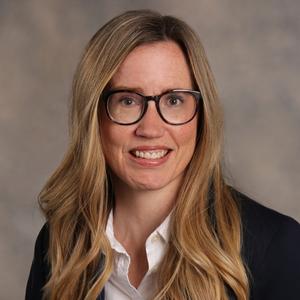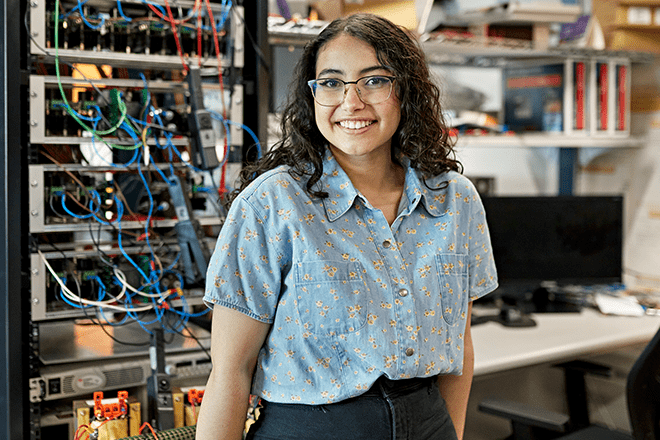2025 should be the year we free teachers to actually teach

Five minutes into a standardized test, a kindergartener’s headphones malfunction. Across the room, three students can’t log into their testing accounts. Twenty others wait, growing restless. The teacher spends 45 minutes troubleshooting technology instead of teaching — time that could have been spent helping students discover, learn and grow.
This isn’t an anomaly — it’s a typical scene that plays out in classrooms nationwide, highlighting how the rigid, standardized approach to education constrains both students and teachers.
But the real problem runs deeper than technical glitches. Our education systems operate in a space of compliance, where success means conforming to standards designed by and for a specific population. Despite mounting evidence that this model isn’t working, systemic change is elusive. And the consequences are becoming impossible to ignore.
Learning is infinite
In 2025, we need to embrace one fundamental truth: Learning is infinite. It’s what makes us human.
Yet our current public school system treats education as an entirely cognitive process, viewing students as vessels to be filled with predetermined knowledge. Education isn’t about pushing content or becoming the expert at the front of the room, though. It’s about creating space for true engagement, discovery and growth.
Success in education starts with recognizing the power inherent in our students and lifting it up. Instead of bringing students and families “to the table,” we need to acknowledge that the community itself is the table. One definition of privilege is making everything look perfect, and that’s what our educational system has tried to do for too long. We need to embrace the beautiful messiness of authentic learning.
Consider how schools currently allocate resources: They purchase hundreds of identical textbooks, standardize curriculum across entire districts and invest in one-size-fits-all technology solutions. What if we redirected these resources to create more dynamic learning environments?
Instead of bulk ordering class sets of the same novel, schools could partner with local libraries to give students a choice in their reading materials. Rather than investing in rigid learning management systems, they could collaborate with local maker spaces and community centers to provide hands-on learning opportunities.
This isn’t just about saving money — it’s about recognizing that authentic learning happens everywhere, not just within school walls. When students engage with real-world experiences and community connections, education becomes naturally more relevant and engaging.
AI can make education more human
Ironically, AI might help us break free from standardization. While many fear AI will further mechanize education, it could instead allow for truly personalized learning. Imagine every student has their own version of an individualized education program (IEP), and AI handles administrative burdens while teachers focus on the details of each student’s meaningful learning plan and on the students themselves.
In practice, this might look like a teacher helping a student pick a novel they’ve chosen for themselves because that student is genuinely interested in the story and subject matter. AI could assist by providing relevant discussion questions and connections to key learning standards while the teacher focuses on guiding deeper analysis and understanding.
When students write about subjects they genuinely care about, it promotes diversity, equity, inclusion and belonging in the curriculum because they can choose stories in which they see themselves represented. It also naturally decreases plagiarism concerns — it’s much harder to find a prewritten essay about an obscure young adult novel than a classic text everyone studies.
Teaching is an evolving art
Teachers enter education to inspire learning and witness moments of discovery, not to follow scripts. Every day, educators face intellectual challenges as they help students engage with new concepts, from math problems they haven’t seen before to books they haven’t read. They serve as coaches and Socratic partners, guiding students through the learning process and applying knowledge in real time.
The standardized “teach to the test” model stifles this natural dynamism. There’s no such thing as a universal best practice, only promising practices that might work for specific students at specific moments. Returning this professional autonomy to teachers could dramatically improve retention while creating more engaging learning experiences.
This approach naturally extends to higher education and career preparation. Think about the most valuable college experiences — they’re rarely theory lectures. Instead, they’re hands-on practicums, internships and real-world applications of knowledge. By giving younger students more agency in their learning, we better prepare them for future success.
Instead of forcing every student through the same pre-college curriculum, we could help them explore their interests earlier through community partnerships and experiential learning. A student interested in working with children could spend time in a local preschool. Someone passionate about environmental science could collaborate with local conservation groups. These experiences provide more authentic preparation for both college and careers than standardized test prep ever could.
How to free teachers to teach in 2025
Forward-thinking schools should:
- Build technology around teaching expertise, not the other way around.
- Use AI to handle administrative tasks while preserving human judgment and pedagogical expertise.
- Create flexible frameworks that allow for personalized learning paths.
- Partner with community organizations to expand learning opportunities.
- Focus on demonstrable skills rather than standardized metrics.
- Design systems that support teacher creativity and autonomy.
- Implement technology that adapts to different learning styles.
- Develop programs that blend academic skills with real-world application.
Teacher burnout, student disengagement and widening achievement gaps aren’t problems we can solve with more standardization or minor tweaks to existing systems.
The tools exist to support a transformation, and research validates it. Now, we need the courage to fundamentally reimagine how we structure education. Schools that embrace this shift won’t just survive ongoing challenges — they’ll help create a more effective and humane model of learning for the future.
How Wipfli can help
In 2025, educational institutions should look to balance personalized learning with proven teaching practices while meeting modern technological demands. The successful transition will require both deep educational expertise and innovative solutions.
Wipfli can help. Our experience in the education industry and our digital solutions can help schools implement AI-powered learning tools, create flexible frameworks for personalized education and design seamless administrative systems while maintaining sound educational practices. Learn more about our education services or our digital services today.





